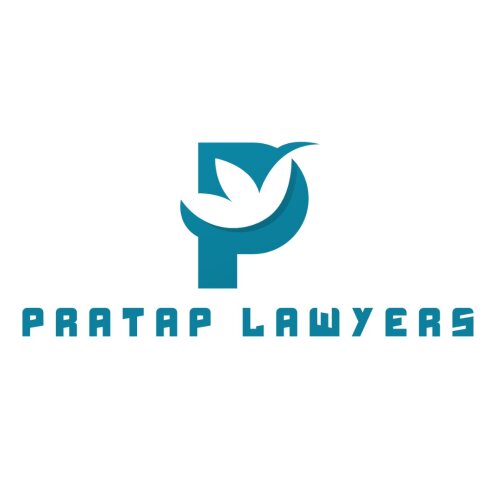Best Restructuring & Insolvency Lawyers in Fiji
Share your needs with us, get contacted by law firms.
Free. Takes 2 min.
Or refine your search by selecting a city:
List of the best lawyers in Fiji
About Restructuring & Insolvency Law in Fiji
Restructuring and insolvency law in Fiji is the legal framework that governs situations where individuals or businesses face significant financial distress or are unable to pay their debts. These laws provide mechanisms for restructuring the finances or operations of a business to avoid insolvency or, if insolvency is inevitable, to handle the distribution of assets to creditors in an orderly and equitable manner. The main aim is to balance the interests of creditors, debtors, and the wider economy, ensuring that businesses can either recover or wind down as fairly as possible.
Why You May Need a Lawyer
Seeking expert legal advice is especially important if you are facing financial difficulties, involved in the management of an insolvent company, or are a creditor to a business in distress. Common reasons people seek help include:
- Dealing with rising debt and unable to meet loan or supplier payments.
- Receiving letters of demand, statutory demands, or winding-up notices from creditors.
- Needing to restructure business operations, finances, or debt to remain viable.
- Facing legal action from creditors or the risk of asset confiscation.
- Wanting to understand your rights and obligations as a creditor or debtor.
- Possibility of liquidation or bankruptcy proceedings against you or your business.
- Concerns about personal liability as a company director or business owner.
- Assistance with voluntary administration or arrangements with creditors.
A lawyer can help you understand the process, represent your interests, ensure compliance with Fiji's insolvency laws, and work towards the best possible outcome.
Local Laws Overview
Restructuring and insolvency matters in Fiji are mainly regulated by the Companies Act 2015 and other related regulations. Key points to note include:
- Insolvency Tests: The law recognizes both the "cash flow" and "balance sheet" tests to determine insolvency. This means a company is insolvent if it cannot pay its debts as they fall due or if its liabilities exceed its assets.
- Liquidation Procedures: The Act provides clear procedures for both voluntary and court-ordered liquidation. A company can go into voluntary liquidation if its shareholders or directors decide to do so, or it can be forced into liquidation by a court order, usually upon application by creditors.
- Creditor Protection: There are specific mechanisms to protect the rights and interests of creditors, including the appointment of liquidators and the fair distribution of assets.
- Restructuring Mechanisms: Fiji’s law allows arrangements and compromises with creditors to be facilitated by the courts, offering a possible route for struggling companies to restructure their debts and continue trading.
- Personal Bankruptcy: Individuals may be made bankrupt if they cannot meet their debt obligations, leading to asset distribution and certain restrictions on their activities.
- Director Responsibilities: Company directors are under strict obligations during insolvency and restructuring, including the duty to avoid insolvent trading and to cooperate with liquidators or administrators.
- Preferential Payments and Voidable Transactions: The law sets out rules preventing unfair payments to certain creditors before insolvency, allowing liquidators to recover assets if these occur.
Frequently Asked Questions
What is the difference between restructuring and insolvency?
Restructuring refers to steps taken to reorganize a business’s financial and operational structure to avoid insolvency. Insolvency is a financial state where a person or company cannot pay their debts as they become due.
How does the liquidation process work in Fiji?
In Fiji, liquidation may be voluntary or ordered by the court. A liquidator is appointed to collect the company’s assets, pay creditors, and distribute any remaining funds to shareholders before dissolving the business.
Can individuals go bankrupt in Fiji?
Yes, if individuals cannot meet their debts, bankruptcy proceedings may be commenced against them. This involves the sale of assets to pay creditors and may involve court supervision.
What happens if a company cannot pay its debts?
If a company is unable to pay its debts as they fall due, it is deemed insolvent. Creditors or company members may apply to the court for the company to be wound up or for a restructuring arrangement to be made.
What is voluntary administration?
Voluntary administration is a process where an external administrator temporarily takes control of a company to assess options for its survival or, if necessary, proceed to liquidation.
What are the duties of company directors during insolvency?
Company directors must act in the best interests of the company and its creditors, avoid trading while insolvent, and cooperate fully with administrators or liquidators.
Are creditors paid equally during liquidation?
Generally, creditors are paid in a specific order of priority set by law, such as secured creditors first, followed by unsecured creditors, and finally shareholders.
Can a company be saved from insolvency through restructuring?
Yes, restructuring allows a company to negotiate arrangements with creditors, possibly rescheduling debt payments, to continue operations and avoid liquidation.
How long does insolvency or liquidation typically take?
The duration depends on the complexity of the company’s affairs, the amount of assets to realize, and the number of creditors involved, ranging from several months to a few years.
Is it possible to challenge a liquidation or bankruptcy order?
Yes, affected parties can challenge an order in court, for example if the company is in fact solvent or if proper procedures were not followed.
Additional Resources
If you are seeking further information or assistance regarding restructuring and insolvency in Fiji, the following resources may be helpful:
- Fiji Financial Intelligence Unit - Offers guidance on financial and insolvency matters.
- Fiji Companies Office - Provides official forms and procedures for company registration, restructuring, and liquidation filings.
- Reserve Bank of Fiji - Has information on the financial industry and regulations that may impact companies in distress.
- Fiji Law Society - Can help you find qualified legal professionals specializing in insolvency law.
- Official Receiver’s Office - Manages bankruptcy and insolvent estates, offering information on personal insolvency.
Next Steps
If you believe you may be facing financial distress or have questions about restructuring or insolvency, consider these steps:
- Assess your current financial situation and gather all relevant documents.
- Seek prompt advice from a qualified lawyer experienced in insolvency and restructuring law.
- Engage with your creditors early and, if possible, begin negotiations under legal guidance.
- Visit the relevant authorities such as the Companies Office or Official Receiver’s Office for information or procedural support.
- Consider all legal options including voluntary administration, company reorganization, creditor arrangements, or liquidation.
- Follow your legal advisor’s guidance to ensure compliance with all legal requirements and maximize the chances of achieving a favorable outcome.
Taking early action and seeking professional legal advice are crucial to protecting your interests and navigating the complexities of restructuring and insolvency law in Fiji.
Lawzana helps you find the best lawyers and law firms in Fiji through a curated and pre-screened list of qualified legal professionals. Our platform offers rankings and detailed profiles of attorneys and law firms, allowing you to compare based on practice areas, including Restructuring & Insolvency, experience, and client feedback.
Each profile includes a description of the firm's areas of practice, client reviews, team members and partners, year of establishment, spoken languages, office locations, contact information, social media presence, and any published articles or resources. Most firms on our platform speak English and are experienced in both local and international legal matters.
Get a quote from top-rated law firms in Fiji — quickly, securely, and without unnecessary hassle.
Disclaimer:
The information provided on this page is for general informational purposes only and does not constitute legal advice. While we strive to ensure the accuracy and relevance of the content, legal information may change over time, and interpretations of the law can vary. You should always consult with a qualified legal professional for advice specific to your situation.
We disclaim all liability for actions taken or not taken based on the content of this page. If you believe any information is incorrect or outdated, please contact us, and we will review and update it where appropriate.
Browse restructuring & insolvency law firms by city in Fiji
Refine your search by selecting a city.
















